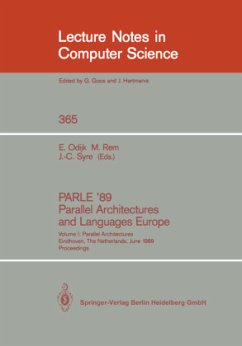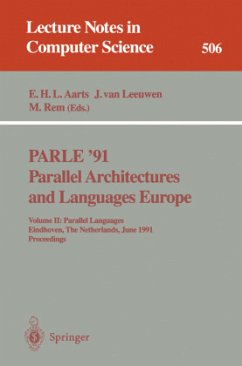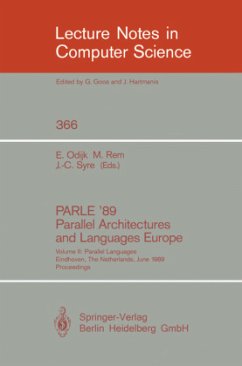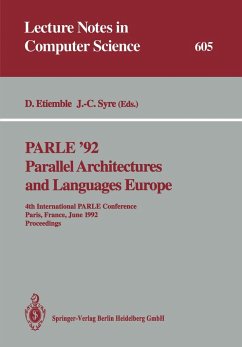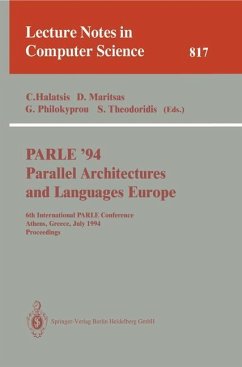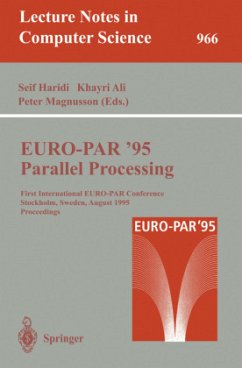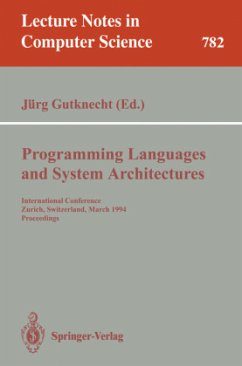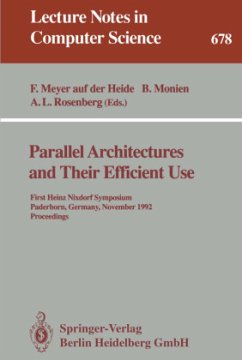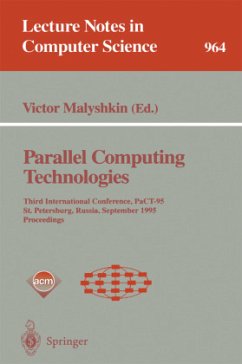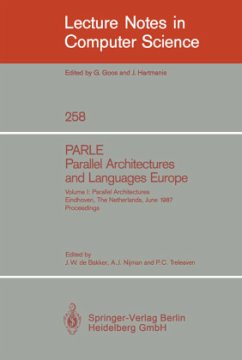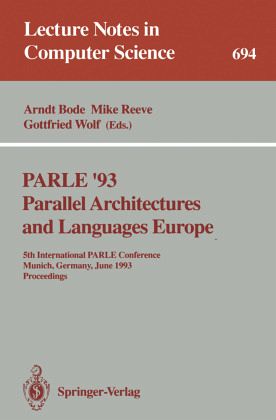
PARLE '93 Parallel Architectures and Languages Europe
5th International PARLE Conference, Munich, Germany, June 14-17, 1993. Proceedings
Herausgegeben: Bode, Arndt; Reeve, Mike; Wolf, Gottfried
Versandkostenfrei!
Versandfertig in 1-2 Wochen
78,99 €
inkl. MwSt.

PAYBACK Punkte
39 °P sammeln!
Parallel processing offers a solution to the problem ofproviding the processing power necessary to help understandand master the complexity of natural phenomena andengineering structures. By taking several basic processingdevices and connecting them together the potential exists ofachieving a performance many times that of an individualdevice. However, building parallel application programs istoday recognized as a highly complex activity requiringspecialist skills and in-depth knowledge. PARLE is aninternational, European based conference which focuses onthe parallel processing subdomain of in...
Parallel processing offers a solution to the problem ofproviding the processing power necessary to help understandand master the complexity of natural phenomena andengineering structures. By taking several basic processingdevices and connecting them together the potential exists ofachieving a performance many times that of an individualdevice. However, building parallel application programs istoday recognized as a highly complex activity requiringspecialist skills and in-depth knowledge. PARLE is aninternational, European based conference which focuses onthe parallel processing subdomain of informatics andinformation technology. It is intended to become THEEuropean forum for interchange between experts in theparallel processing domain and to attract both industrialand academic participants with a technical programmedesignedto provide a balance between theory and practice.This volume contains the proceedings of PARLE '93. The PARLEconference came into existence in 1987 as an initiative fromthe ESPRIT I programme and the format was revised in1991/92. PARLE '93 is the second conference with the newformat and was held in Munich.





